- Home
- Paul Christopher
Rembrandt's Ghost Page 11
Rembrandt's Ghost Read online
Page 11
‘‘I didn’t know that,’’ said Finn, cocking an eyebrow.
Billy smiled. ‘‘Neither did I until I read the brochure on the flight.’’
‘‘Isn’t this going to be a little expensive?’’ Finn asked as they stepped into the soaring, ornately decorated mid-Victorian lobby. It was no Motel 6. There were silk carpets on marble floors and silver buckets filled with exotic flowers wherever they looked.
‘‘Yes,’’ said Billy. ‘‘But it doesn’t matter. It’s just for one night. I called Tulkinghorn on the plane and told him about the Flush. She was well insured and I have other resources as well.’’ He grinned broadly. ‘‘Including a bank manager who loves extending my overdraft just to have an over-extended duke on his list of clients.’’
‘‘That kind of thing really goes on?’’
‘‘You bet your patootie it does sweetheart,’’ Billy answered, doing an awful James Cagney imitation. ‘‘Watch this.’’ She followed him to the front desk and stood by as he introduced himself to the night manager of the hotel, a man in his sixties wearing a turban and what appeared to be an Armani suit. The first clue seemed to be Billy’s aristocratic English accent. The second clue was the first mention of the word ‘‘lord.’’ Finn never even saw a credit card produced for identification or money change hands. The night manager stiffened, rang a bell, and started snapping orders to subordinates. Within thirty seconds someone had taken the bags from Billy’s hand, and thirty seconds after that they were on one of the old-fashioned elevators being shepherded up to their Palm Court suite. Ten minutes later, with the smell of orange blossoms and jacaranda all around her, a suddenly exhausted Finn Ryan slid between silk sheets and was instantly asleep.
The next thing she knew, it was morning and Billy was standing beside her bed wearing a fluffy white bathrobe and drying his hair. ‘‘Wake up,’’ he said. ‘‘The shower awaits. Breakfast on the verandah in fifteen minutes. Eggs. Bacon. Orange juice. Coffee. Scones. Jam. Hurry up.’’
The shower was like a piece of heaven and the breakfast was even better. The suite had its own porch that overlooked the broad rectangular courtyard of the hotel, jammed, as advertised, with scores of palm trees. A crystal bowl the size of a volleyball stood in the center of the table, overflowing with every kind of fruit imaginable. Everything was served on silver. The toast came in a rack, the butter was chilled but not hard, and the scrambled eggs were perfect. The bacon was ambrosia; the coffee was dark, pungent, and delicious.
‘‘This is the kind of breakfast movie stars eat,’’ Finn said.
‘‘Then that would make you Julia Roberts,’’ said Billy. ‘‘Have some juice.’’
Finn happily followed orders and finished up her breakfast. After the food was eaten, they stayed on the balcony enjoying the last of the coffee and the exotic view.
‘‘Okay,’’ said Finn after a few long moments staring down at the crushed stone paths, the flowers, and the palms. ‘‘Enough Rudyard Kipling for one day. What’s on tap?’’
‘‘On tap? In the Writers Bar? Tiger draft, I expect.’’
Finn launched a piece of cold toast across the table at him. ‘‘You know what I mean.’’
‘‘The hotel has a computer I can use. I want to research that gold piece Derlagen the skinhead attorney gave you, and I thought we should check that book you picked up against the rutter. The author was a diplomat’s wife or something.’’
‘‘I’d forgotten all about it,’’ she said. She got up, went back into the suite, and rummaged around in her overnight bag. She found the book and the box with the figurine in it and brought both back to the table.
‘‘Agnes Newton Keith,’’ said Finn, reading the flyleaf blurb. ‘‘The Land Below the Wind. Her husband was with the Colonial Service as Conservator of Forests. She’d been a reporter for the San Francisco Examiner. It’s all about their adventures in Sandakan, a remote province of North Borneo. I thought all of Borneo was remote.’’
‘‘Some places more than others, I expect,’’ answeredBilly. ‘‘It’s a gigantic place. Third-largest island in the world. A quarter million square miles and almost all of it jungle. That’s as big as Holland, France, and Belgium combined. About the same size as the Saudi Arabian Desert.’’
‘‘You’ve been reading brochures again.’’ Finn smiled.
‘‘It was a long flight.’’
Finn took the gleaming figurine out of the box and set it down on the pure white linen tablecloth. ‘‘So what does North Borneo have to do with a gold pendant from Central Africa?’’
‘‘It could be anything,’’ said Billy. ‘‘As I understand it gold is very hard to age. It looks the same if it’s a thousand years old or if it’s been smelted yesterday. Eternal gold and all that.’’
‘‘Mansa, or King Musa, went on a pilgrimage to Mecca in the thirteen hundreds,’’ said Finn, ‘‘but that only gets us as far as Saudi Arabia.’’
‘‘Who traded with Saudi Arabia back then?’’
‘‘There was no such thing. It was a bunch of separate sultanates. There are theories about Chinese treasure fleets getting to Oman and Jeddah around the same time as Mansa Musa. It’s a stretch, but it’s a possibility.’’
‘‘Of course there’s also the possibility that cousin Pieter is just a rich, eccentric lunatic who’s gone and got himself bunged up in the rain forest somewhere, and none of this lot means anything.’’ Billy laughed. ‘‘My family’s actually rather famousfor being eccentric, myself being a prime example.’’
Finn picked up the little figure, letting her thumb gently run over the soft, buttery metal. ‘‘Willem Van Boegart went away on the Flying Dragon in the late seventeenth century and came back to Amsterdam a wealthy man. That much we know is true, the rutter proves it. Our little gold horseman here may be proof of where that wealth actually originated.’’
‘‘A Chinese treasure ship?’’
‘‘Admiral Zheng. He made seven great treasure voyages, the last one in 1433. There were hundreds of ships involved. They took porcelain and silks with them on the outward voyage and returned with gold, gems, ivory, and spices. There were reports of several hurricanes and wrecks. Maybe our little gold friend came from a wreck that Willem Van Boegart discovered on the voyage of the Flying Dragon.’’
‘‘Wouldn’t that be bloody marvelous?’’ said Billy. ‘‘Picking up where old Willem and Pieter left off. Now that would be an adventure.’’
‘‘In my experience danger and adventure are often the same word,’’ cautioned Finn. ‘‘Remember what happened to the Busted Flush.’’
‘‘I haven’t forgotten,’’ said Billy. ‘‘In fact I hope we run into those fellows again.’’
‘‘It makes for a nice movie plot but reality is something else again, believe me.’’ She didn’t have to dig very deeply in her memory to see the body of the man who’d died on a railway line in Italy, or a young boy slaughtered beside a tomb in Cairo’s City of the Dead. In her short life, she’d seen enough violent death to last her forever; there was no bravado or courage in it, only brutality, pain, and the hot copper smell of spilled blood. Suddenly the coffee tasted bitter and the heat of the bright sun became oppressive. ‘‘What about the ship?’’
‘‘I’ve already talked to the shipping agent. She’s due to dock in Jurong Harbor at midnight. I think we should be there to meet her.’’
At just after eleven p.m., the Batavia Queen waited in the eastern approaches of Singapore Strait, a mile or so off Sentosa Island, prudently staying just outside the main shipping lane to the container port at Keppel Harbor. Keppel was one of half a dozen docking facilities that made up the Port of Singapore from Jurong in the west to Marina Bay in the east. Once upon a time it had even been possible for break-bulk ships like the Queen to navigate through the Johor Strait between Singapore Island and the Malaysian mainland, but the construction of the Johor-Singapore Causeway in the 1920s closed the strait to navigation.
‘‘I can’t stay out he
re much longer,’’ said Briney Hanson, standing by the starboard rail of the ship. ‘‘We’ll have the Harbor Police sniffing around if we don’t watch out.’’ He scanned the night. The darkness was absolute. The sea was a gently undulating pool of inky blackness and the stars were blotted out by a layer of overcast. There was no moon. The only light came from the condos and hotels on Sentosa Island and the garish lights of Singapore beyond.
‘‘Patience, Captain,’’ said Lazlo Aragas, standing at his side. He was dressed as he had been when they met: white suit, glistening shoes, and the Borsalino Panama set squarely on his head. The only thing missing was the sunglasses. They had been replaced by an antiquated pair of horn-rims that were somehow even more sinister. A pair of Russian-made night-vision binoculars hung from a leather strap around his neck. Beside the two men the Slazenger crates had been hoisted onto the deck. Above them, on the bridge, Eli Santoro stood watch, ready to call on McSeveney to give them full steam ahead if necessary.
‘‘Easy enough to say,’’ responded Hanson. ‘‘But I’m not sure I like the idea of going to Changi Prison for trying to smuggle your tennis balls.’’
‘‘You won’t be going to Changi,’’ said Aragas. ‘‘At least not yet, and not because of me.’’ He lifted the night-vision glasses and peered into the darkness. ‘‘Ah,’’ he said softly. ‘‘They’re coming.’’ Aragas turned to Hanson and smiled. ‘‘Would you like to have a look?’’
Hanson nodded. Aragas lifted the binoculars, careful not to disturb the Panama as he brought the strap over his head. In the six days since sailing from Mariveles he’d never seen Aragas without it. He took his meals in his cabin, and according to Bazooki, the Samoan steward and cook’s assistant, the Borsalino was in place even there.
Hanson lifted the night glasses. The world turned a lurid green. Three hundred yards off the starboard bow he could see the shape of a fast boat, its sharp bow leaving a broad green slash in its wake. Even in the night glasses the boat’s lines were distinctive and so was the broad dark stripe down the side: Singapore Police Coast Guard, one of their half dozen Rodman 55 Jet boats. There was no point in getting on the blower to McSeveney; the Rodman could do thirty-five knots in a calm sea and the Queen would be lucky to make half that. They’d been screwed.
He lowered the glasses and turned to Aragas. ‘‘Bastard.’’
‘‘Betrayal is a wonderful thing, no?’’ Aragas said.
Hanson felt his insides knot. It was all over. ‘‘I could toss your sorry little ass overboard right now.’’ He pulled the Curry Lockspike out of his pocket and snapped the blade open. ‘‘But first I’d open up an artery for the sharks to work on.’’
‘‘Don’t be silly, Captain. That boat has a fifty-caliber machine gun mounted on the deck and my men are all armed as well. The boat is also equipped with four medium Whitehead acoustic torpedoes. Your ship would be turned to scrap metal within a minute and a half. You’d be dead before the first shark took a bite.’’
The patrol boat was getting closer. A searchlight on the bow flashed on, bathing the entire flank of the Queen in brilliant light. Eli came out onto the flying bridge and called anxiously down to Hanson.
‘‘We get a problem, boss?’’
‘‘I’ll let you know,’’ yelled Hanson. Eli went back into the deckhouse. Hanson turned to Aragas. ‘‘So you’re some kind of cop?’’
‘‘Indeed, Captain, I am some kind of cop. Have you ever heard of CISCO?’’
‘‘Private spooks,’’ answered Hanson. CISCO stood for Commercial and Industrial Security Corporation, a privatized sector of the Singapore Police Force, usually dealing in industrial crime and intelligence.
‘‘A specialist. Antiterrorism.’’
‘‘Isn’t everyone these days?’’ Hanson snorted. ‘‘You’d think there was no other crime.’’
‘‘In my case there isn’t,’’ replied Aragas. ‘‘Terrorism is an expensive business for all concerned. Drugs are generally what finances it.’’
‘‘So what are we doing here?’’ Hanson asked.
‘‘Just as I told you in the first place,’’ said the dapper little man.
‘‘Shipping tennis balls,’’ said Hanson, jerking his chin toward the pile of crates with the leaping leopard logo on the side.
‘‘That’s right.’’ Aragas smiled. The patrol boat came alongside, searchlight blazing, and within a few seconds, uniformed men were swarming up the companionway ladder Hanson had ordered to be lowered to accommodate whoever came out from Sentosa Island. The men all carried CIS drum-fed machine guns and Sphinx 3000 nine-millimeter automatic pistols. They looked extremely efficient.
Aragas nodded to the lead officer, a three-striper with a face that looked like it had been dragged along a dirt road, and gestured toward the stack of crates. ‘‘Membuka dia!’’ he ordered. The man with the jackhammered face stepped forward and smashed the butt of his weapon into one of the crates. The wood splintered and he tore the box open. Aragas went to the box and removed one of the familiar dark blue Slazenger tubes. He brought it back to where Hanson stood at the rail and pulled open the vacuum-sealed top. There was a slight hiss and four bright yellow tennis balls dropped out of the tube and hit the deck of the Batavia Queen. As the ship rolled slightly they drifted off toward the bilges.
‘‘Tennis balls,’’ said Aragas. ‘‘Slazenger Ultra Vis.’’
‘‘What’s the story?’’ Hanson asked, staring.
‘‘The story is the oldest one in the world, Captain Hanson,’’ said Aragas. ‘‘We have established precisely what you will do for a price. In this case you proved yourself both corruptible and intelligent. These are two assets I expect to find very useful in the future.’’
‘‘Isn’t this all entrapment?’’
‘‘Entrapment is an American word from their police movies, Captain Hanson. It doesn’t apply in the real world. We have a half dozen official witnesses who will swear that you have been caught illegally bringing items into the sovereign state of Singapore. The fact that it is tennis balls is irrelevant. The crime is the same: cocaine or coconuts, heroin or handguns, shabu or Shetland ponies. You can be convicted of smuggling anytime I see fit—do you understand?’’
Hanson understood that the slimy little bastard had him by the short hairs and that he was in no position to negotiate; his livelihood, his very life, hung in the balance. Somewhere in the distance a ship’s horn sounded. Water lapped against the hull in a flat, unending rhythm. ‘‘What do you want?’’
‘‘Your cooperation.’’
‘‘Which means?’’
‘‘Your vessel has been sold to new owners. Two young people—an American woman and her companion,a British subject of some aristocratic rank—have inherited this ship as part of one of Boegart Shipping Lines trust agreements.’’
Hanson nodded. ‘‘They’re supposed to be meeting us in Singapore.’’
‘‘Yes,’’ said Aragas. ‘‘I am also informed that a man named Khan has shown a decided interest in these two people. You know the name?’’
‘‘Of course, everyone in this line of business does. You’re talking about the pirate.’’
‘‘He does not think of himself as a pirate. Pirates are easy to deal with. They are motivated only by greed and greed is an easy thing to feed. Our Khan fashions himself a revolutionary, an idealist, a zealot. Like our friend Mr. bin Laden, Jackson Abang Abdul Rauf thinks he has God on his side. There is nothing more dangerous than a true believer, Captain Hanson, take it from me. Such men cannot be dealt with simply by giving them an envelope filled with cash.’’ Aragas paused and turned toward the three-striper. He snapped his fingers and the sergeant started barking orders to the other men who had boarded the Batavia Queen. They began taking the crates down the companionway ladder to the patrol boat alongside.
‘‘What are you saying?’’
‘‘Khan is the leader of an organization with a very long reach, Captain Hanson. He tried to have your new owners ki
dnapped in London and then tried to eliminate them again in Holland. No doubt he will try again now that these two people have arrived in Singapore.’’
‘‘Why?’’
‘‘Indeed. That is the question I would like answered myself.’’
‘‘So I’m supposed to find out for you?’’
‘‘If you’d be so kind, Captain Hanson. It would be of interest to me to know why these two people are important enough to pose a threat to a man like Khan.’’
‘‘And if I find out anything?’’
‘‘Report back to me.’’
‘‘How? You want me to send it out on the radio? Khan monitors all the maritime frequencies. That’s how he knows what ships to go after. He’s also got spies in every one of the major shipping agency offices.’’ He gestured at the men loading the crates. ‘‘I’ll bet he’s got people in your operation as well.’’
‘‘The Coast Guard Police aren’t my operation as you call it, Captain Hanson. You might say I am my own operation.’’ He turned and snapped his fingers again. The gravel-faced sergeant stepped forward and stood to attention in front of Aragas. He held out his hand. The sergeant reached into the pocket of his jacket and took out a palm-sized telephone unit with a slightly larger than usual antenna wand. He handed the phone to Aragas, who in turn held it out to Hanson. ‘‘This is a Hughes 9505A iridium satellite telephone. It has a restricted memory, which means the only person it will call is me. Switch it on, press the number one, and you will be connected automatically. Is that too difficult for you, Captain?’’
The men in the Police Coast Guard uniforms removed the last crate of tennis balls and manhandled it down the companionway stairs.
‘‘No, I suppose I can manage that,’’ said Hanson, taking the phone. It was extremely heavy for its small size. There was no use in trying to bluster his way out of the situation he was in; Aragas had played him perfectly. ‘‘Do you have any idea what Khan is looking for? Drugs? Weapons? What?’’
‘‘There is a rumor . . .’’ Aragas glanced across the deck. The last crate was gone along with the police. The sergeant stood alone at the head of the companionway leading down to the waiting patrol boat. Aragas made a small gesture with his hand and the sergeant turned away and went down the stairway. ‘‘There is a rumor that Khan searches for a great treasure from the war.’’

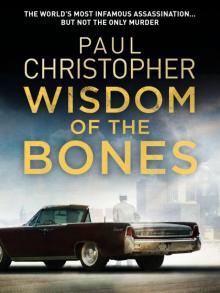 Wisdom of the Bones
Wisdom of the Bones The House of Special Purpose
The House of Special Purpose The Second Assassin
The Second Assassin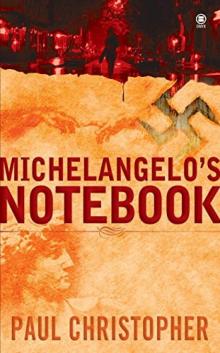 Michelangelo's Notebook
Michelangelo's Notebook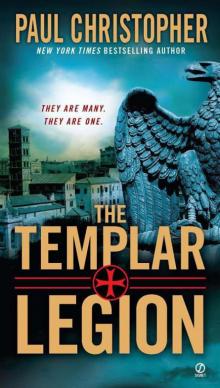 Templar Legion
Templar Legion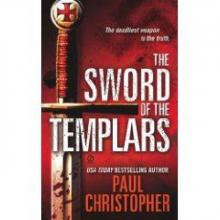 The Sword of the Templars t-1
The Sword of the Templars t-1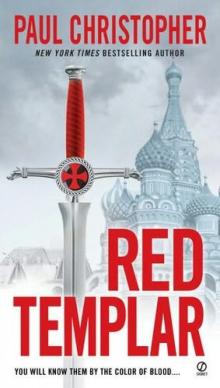 Red Templar
Red Templar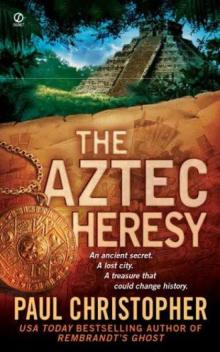 The Aztec Heresy
The Aztec Heresy The Templar Legion
The Templar Legion Rembrandt's Ghost
Rembrandt's Ghost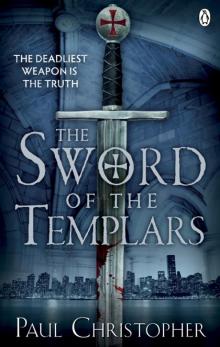 Sword of the Templars
Sword of the Templars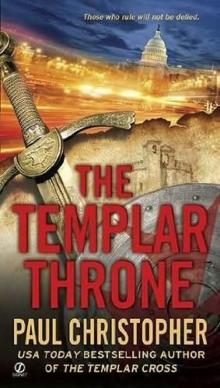 The Templar throne t-3
The Templar throne t-3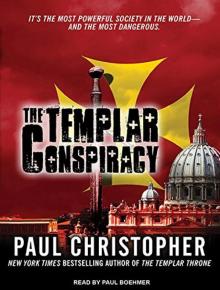 The Templar Conspiracy
The Templar Conspiracy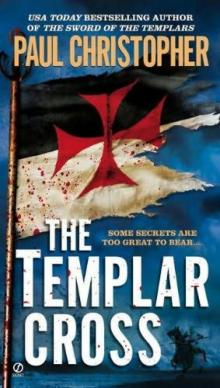 The Templar Cross t-2
The Templar Cross t-2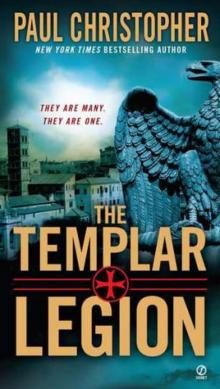 The Templar Legion t-5
The Templar Legion t-5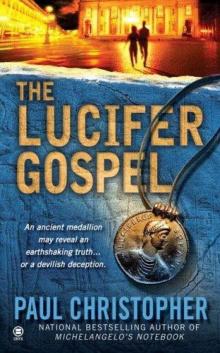 The Lucifer Gospel
The Lucifer Gospel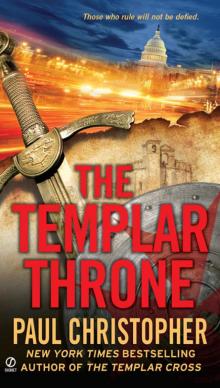 Templar Throne
Templar Throne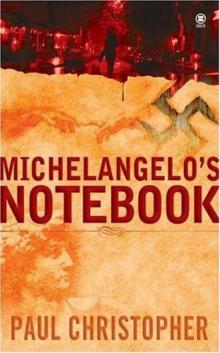 Michelangelo_s Notebook fr-1
Michelangelo_s Notebook fr-1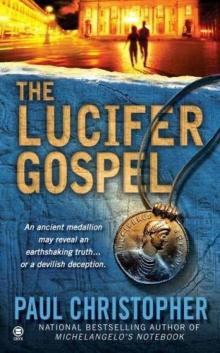 The Lucifer Gospel fr-2
The Lucifer Gospel fr-2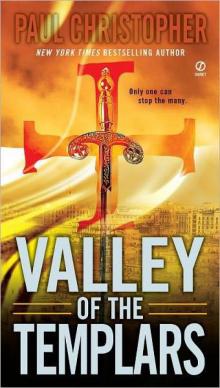 Valley of the Templars ts-7
Valley of the Templars ts-7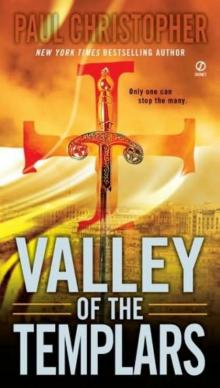 Valley of the Templars
Valley of the Templars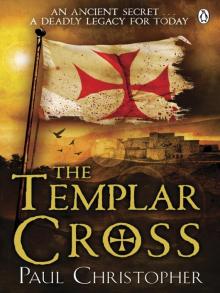 Templar Cross
Templar Cross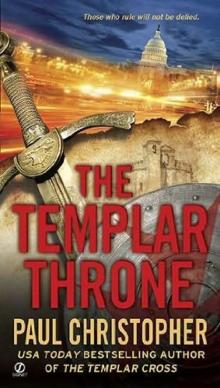 The Templar Throne
The Templar Throne The Templar Cross
The Templar Cross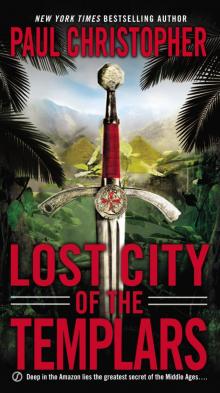 Lost City of the Templars
Lost City of the Templars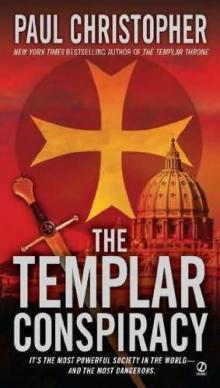 The Templar conspiracy t-4
The Templar conspiracy t-4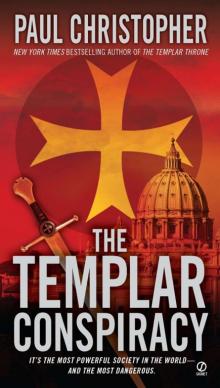 Templar Conspiracy
Templar Conspiracy